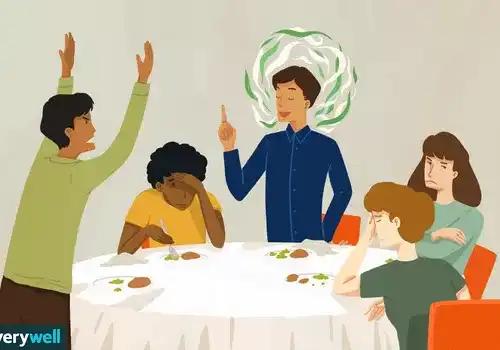Dunning-Kruger Effect: Why Incompetent People Think They Are Superior
Curated from: verywellmind.com
30
Explore the World's Best Ideas
Join today and uncover 100+ curated journeys from 50+ topics. Unlock access to our mobile app with extensive features.
Dunning-Kruger Effect
- The Dunning-Kruger effect is a type of cognitive bias in which people believe that they are smarter and more capable than they really are. Essentially, low ability people do not possess the skills needed to recognize their own incompetence. The combination of poor self-awareness and low cognitive ability leads them to overestimate their own capabilities.
People who scored in the lowest percentiles on tests of grammar, humor, and logic also tended to dramatically overestimate how well they had performed .
55
669 reads
Causes Of Dunning-Kruger Effect
Incompetence robs the mental ability to realize just how inept they are.
Incompetent people tend to:
- Overconfident their own skill levels
- Fail to recognize the genuine skill and expertise of other people
- Fail to recognize their own mistaked and lack of skill
Low performers are unable to recognize the skill and competence levels of other people, which is part of the reason why they consistently view themselves as better, more capable, and more knowledgeable than others.
51
251 reads
Who Is Affected By The Dunning-Kruger Effect
The reality is that everyone is susceptible to this phenomenon. People who are genuine experts in one area may mistakenly believe that their intelligence and knowledge carry over into other areas in which they are less familiar. A brilliant scientist, for example, might be a very poor writer. In order for the scientist to recognize their own lack of skill, they need to possess a good working knowledge.
45
243 reads
Inability To Recognize Lack Of Skill And Mistakes
Deficits in skill and expertise create a two-pronged problem. First, these deficits cause people to perform poorly in the domain in which they are incompetent. Secondly, their erroneous and deficient knowledge makes them unable to recognize their mistakes.
44
223 reads
A Lack Of Metacognition
The Dunning-Kruger effect is also related to difficulties with metacognition, or the ability to step back and look at one's own behavior and abilities from outside of oneself. People are often only able to evaluate themselves from their own limited and highly subjective point of view. From this limited perspective, they seem highly skilled, knowledgeable, and superior to others. Because of this, people sometimes struggle to have a more realistic view of their own abilities.
46
183 reads
A Little Knowledge Can Lead To Overconfidence
A tiny bit of knowledge on a subject can lead people to mistakenly believe that they know all there is to know about it. As the old saying goes, a little bit of knowledge can be a dangerous thing. A person might have the slimmest bit of awareness about a subject, yet thanks to the Dunning-Kruger effect, believe that he or she is an expert.
44
166 reads
Overcome the Dunning-Kruger Effect
- Keep learning and practicing. Instead of assuming you know all there is to know about a subject, keep digging deeper.
- Ask other people how you're doing. Another effective strategy involves asking others for constructive criticism. While it can sometimes be difficult to hear, such feedback can provide valuable insights into how others perceive your abilities.
- Question what you know. Even as you learn more and get feedback, it can be easy to only pay attention to things that confirm what you think you already know.
48
177 reads
IDEAS CURATED BY
Hasyb Ullah's ideas are part of this journey:
Learn more about psychology with this collection
How to make rational decisions
The role of biases in decision-making
The impact of social norms on decision-making
Related collections
Similar ideas
4 ideas
4 ideas
8 ideas
Read & Learn
20x Faster
without
deepstash
with
deepstash
with
deepstash
Personalized microlearning
—
100+ Learning Journeys
—
Access to 200,000+ ideas
—
Access to the mobile app
—
Unlimited idea saving
—
—
Unlimited history
—
—
Unlimited listening to ideas
—
—
Downloading & offline access
—
—
Supercharge your mind with one idea per day
Enter your email and spend 1 minute every day to learn something new.
I agree to receive email updates







